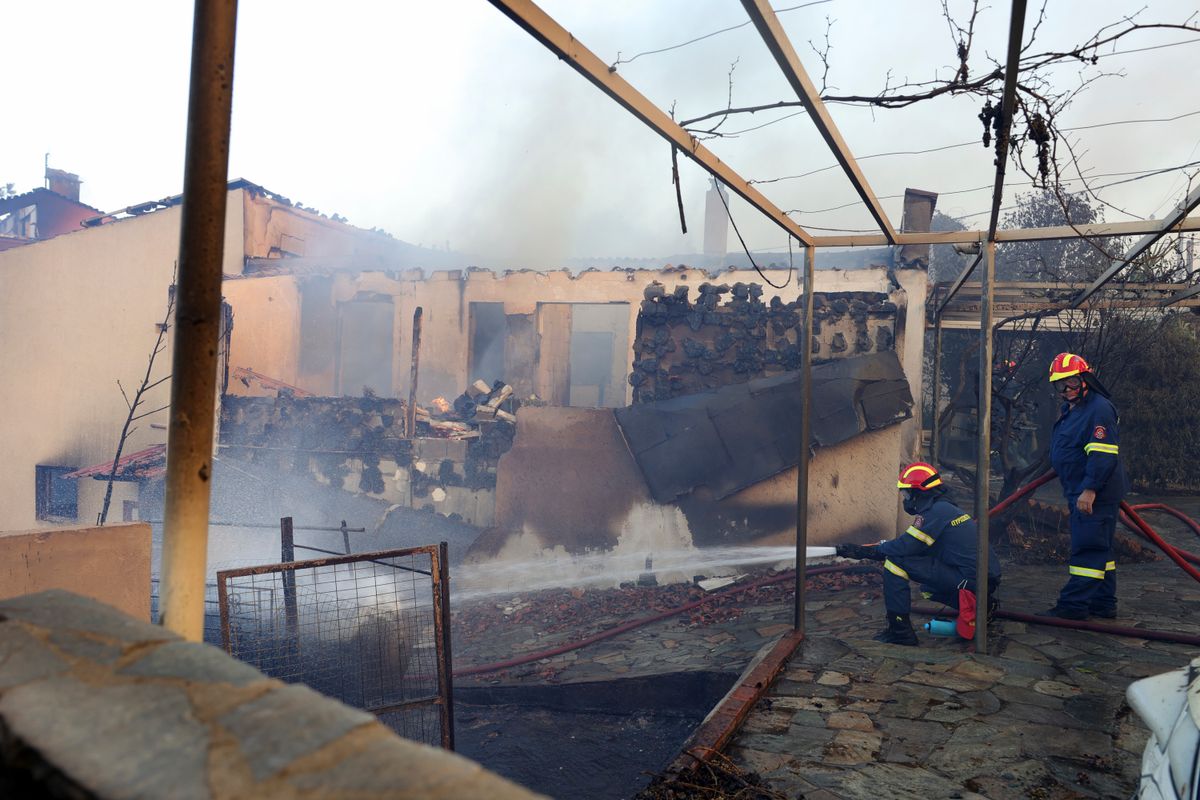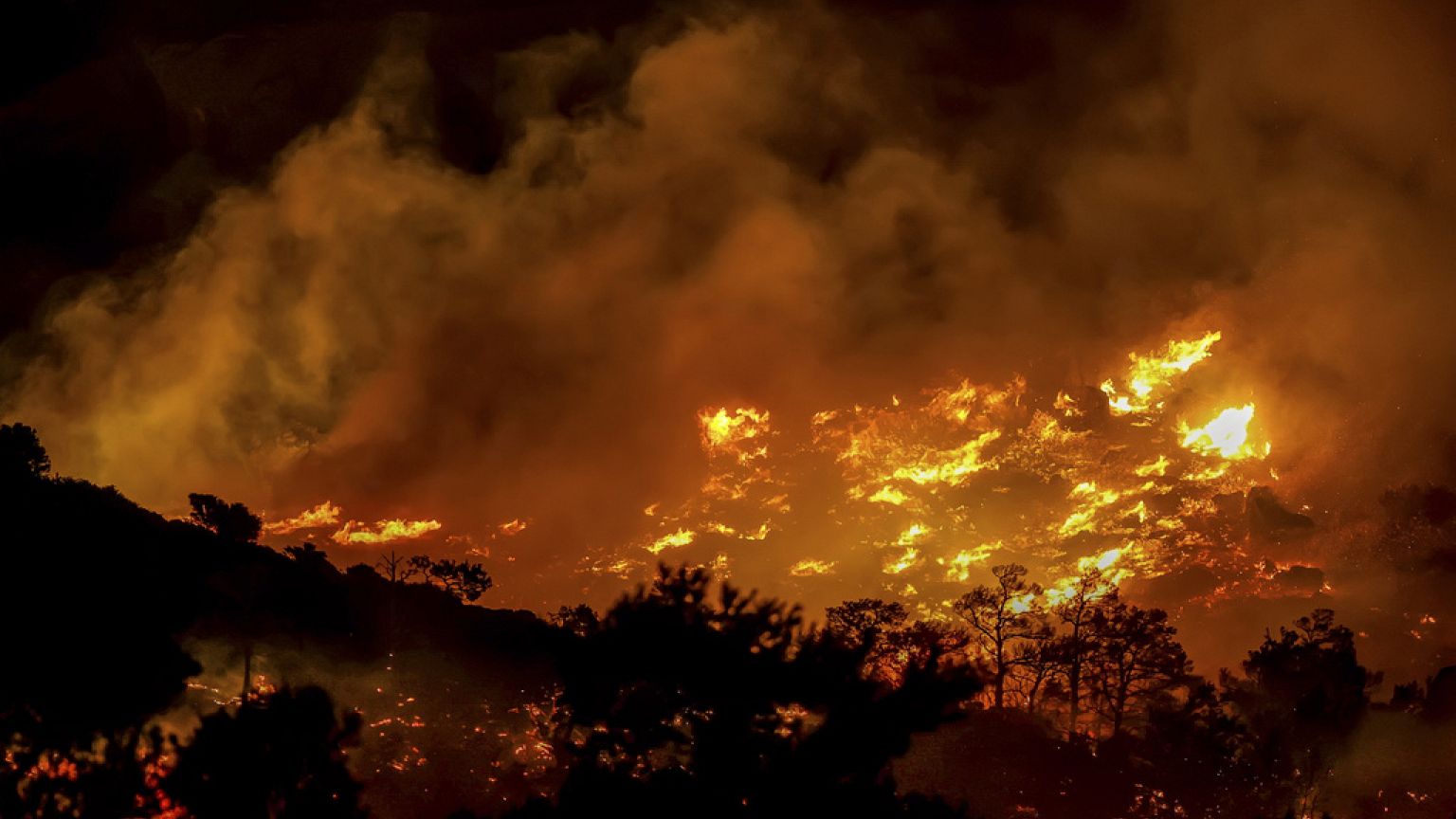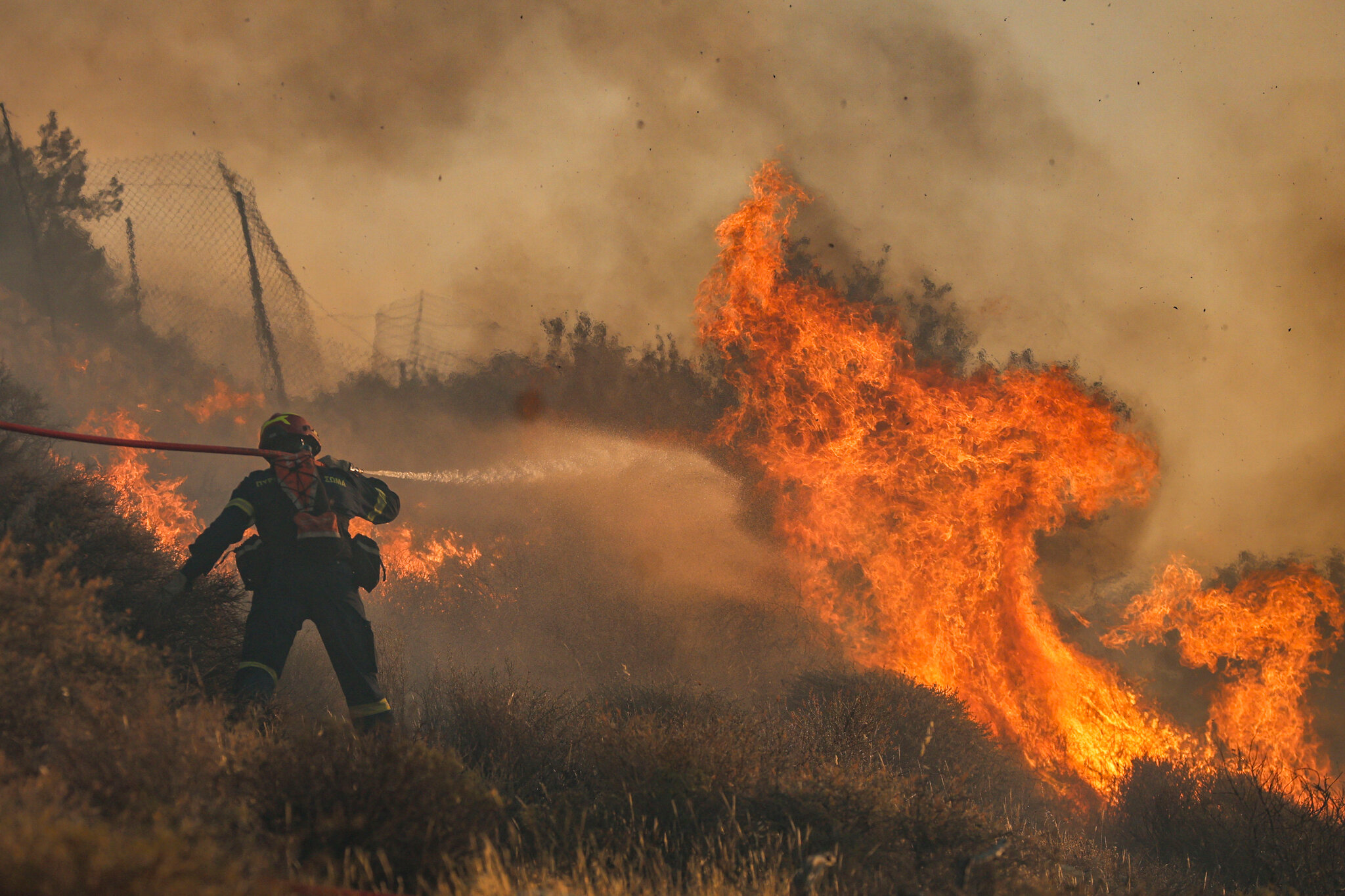Greece is grappling with one of the most severe wildfire crises in its recent history, as soaring temperatures, persistent drought, and powerful winds have combined to fuel dozens of blazes across the country. The situation has reached critical levels in the region surrounding Athens and on the islands of Evia, Kythera, and Crete, prompting mass evacuations, transnational firefighting cooperation, and urgent calls for assistance.

Fires Ravage Regions West of Athens
By Sunday, July 27, 2025, major wildfire fronts had been active for several days, particularly West of Athens in the Peloponnese area. Authorities have reported that entire villages and densely forested areas have been evacuated, with residents forced to seek safety. The pressure has been particularly acute in Kryoneri—a suburb north of Athens—where police increased security amid concerns of looting as homes were left abandoned. Explosions and huge clouds of smoke enveloped villages such as Drosopigi, where factories holding flammable materials magnified the risk of further disaster.
The Battle on the Islands
The islands of Evia and Kythera have experienced some of the most dramatic scenes of devastation. On Kythera, half the island has reportedly been charred, with losses including homes, beehives, and olive trees. Local authorities called for a state of emergency, with stepped-up assistance requested to confront the catastrophe. The situation led to the evacuation of numerous villages and popular tourist beaches. Meanwhile, on Evia, flames destroyed vast tracts of forest and killed thousands of farm animals, while repair crews worked to restore crippled power and water supplies.

On Crete, several homes and even a church were lost before firefighters managed to contain the fires. The fierce effort required deployment of dozens of firefighters, helicopters, and aircraft, some of which were provided by Italy and the Czech Republic under European Union mutual aid agreements.
Relentless Heatwaves Increase Danger
This wildfire emergency occurs as Greece faces its third—and most intense—heatwave of the summer. Meteorological services have routinely recorded temperatures above 40°C (104°F), with some areas hitting 45°C (113°F). In Amfilohia, western Greece, a thermometer reached 45.2°C on Saturday. The Athens region itself has seen highs of 41–42°C, while rural and island communities have experienced both extreme heat and dangerously dry conditions.
The National Observatory of Athens warned that these hot, dry conditions—dating back as early as July 20—created an exceptionally high risk for “wind-driven fires,” especially as strong north/northeast winds started to sweep across the mainland and the Aegean Sea. These conditions not only make wildfires more likely but also make them vastly more difficult to control and contain.
Evacuations, Health Risks, and the Human Toll
Greek authorities have issued evacuation orders for numerous regions, using emergency alert systems to urge people from their homes to safety. Elderly residents have suffered from respiratory problems as thick smoke blanketed affected areas. Across the country, at least 52 wildfires were reported within a 24-hour span, stretching response teams to their limits and triggering international appeals.
Local officials, like the deputy mayor of Kythera, have described the destruction as total in some areas, with significant losses to property and local economies. The Greek Prime Minister assured citizens that the state would provide support to those who have lost homes and livelihoods, emphasizing a “titanic” struggle against the flames.
Climate Change and the Future
This summer’s wildfires are part of a troubling trend in Greece and southern Europe. Experts say that the combination of unprecedented temperatures, dryness, and more frequent, intense weather events can be directly linked to climate change. Heatwaves have become more severe and more regular, making the region increasingly vulnerable to natural disasters.
According to data from the Copernicus Climate Change Service, Europe is warming at twice the global average, intensifying ecological risks and expanding the traditional fire season. The World Health Organization notes that climate change is causing longer and more destructive fire seasons, with significant impacts on public health, essential services, and local economies.
International Response and Local Resilience
In response to the escalating crisis, Greece has activated the European Union Civil Protection Mechanism, drawing on resources and expertise from other EU countries. Italian aircraft, Czech firefighting teams, and local volunteers are working alongside Greek forces in a coordinated attempt to bring the fires under control.
While meteorologists predict that the extreme heat may subside slightly after July 27, the scars left by this catastrophe are likely to linger: thousands of hectares of land lost, homes reduced to ashes, and communities facing the long process of rebuilding. As climate patterns shift and the threat of wildfires increases, Greece—like much of southern Europe—faces the urgent task of adapting its emergency strategies, infrastructure, and climate resilience to a hotter, more volatile future.

